Spillin’ the Tea on Conservatism at ASIJ
Reading Time: 5 minutesSubmission:
A lot of the people at ASIJ who lean conservative say that they feel “discriminated against.” (I assume they are using the term lightly, but why say it if you don’t feel that way to a certain extent?) Why is that? Does this mean because ASIJ tends to lean liberal, people who lean conservative are discriminated against?
Submit more here!:
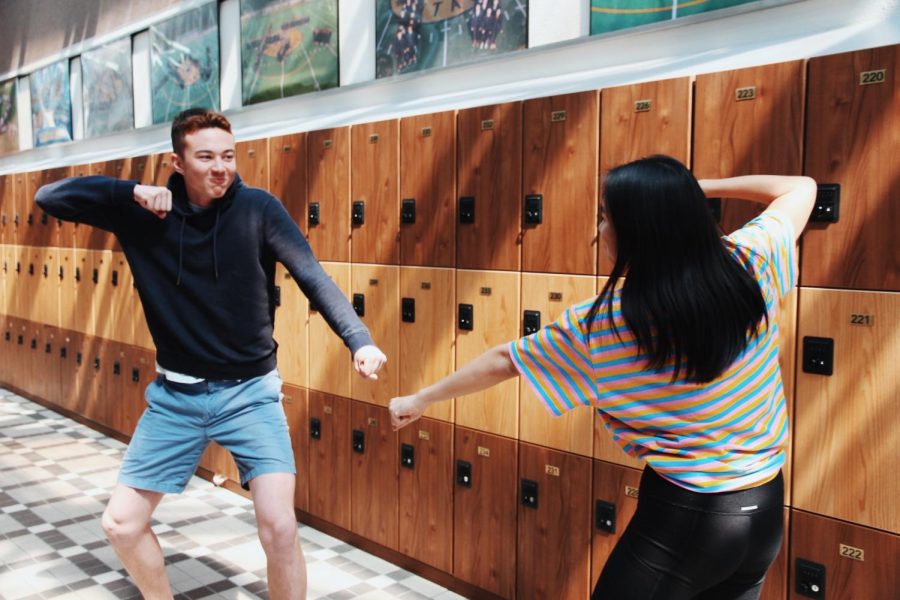
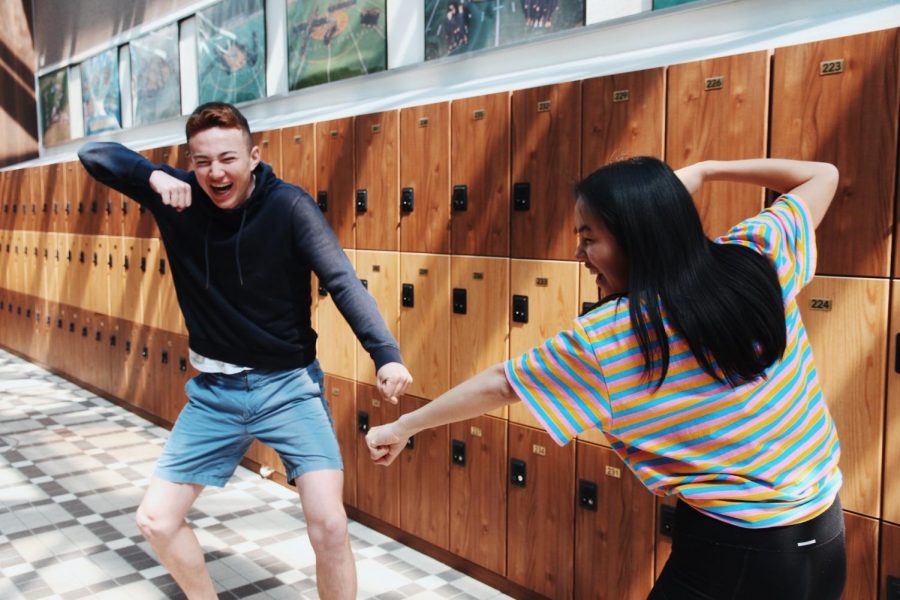
Masa:
I think your question is a pretty widely-shared take on ASIJ ’s political climate. To tackle the issue of how we treat those with different beliefs, it’s important for us to determine if there really are such differences to begin with. It’s worth mentioning that I’m not a huge fan of using such sweeping labels like “liberal” and “conservative” because in reality, most student’s beliefs are a mixed bag, putting them somewhere in between, which in essence is what my response is about.
The common narrative, that ASIJ is a “liberal” school, and that within a large majority of similar-minded students (who’d be characterized as liberal) there are a few, holdout “conservative” students, is probably a misunderstanding of where students really are politically.
First, because of the current political climate and the socially sensitive time that is high school, it becomes second nature for us to identify slight differences in political opinion and then create an imagined environment where those differences are much starker than they are.
In reality, the political diversity at our school is remarkably slim, with even the most die-hard LGBT advocate, BLM supporting, Bernie Sanders-types being relatively similar in terms of political belief to the most “conservative” of ASIJ students, who might oppose abortion and most cases of affirmative action in schools and the workplace.
Students on both sides create differences where there are few, first and foremost from the faulty identities they ascribe to someone else. Things like, “Oh, he’s uncomfortable with gay marriage, he’d vote for Trump,” or “She’s a huge SAGE kid, she wants women to have more rights than men.” In reality, with a similar economic (upper-middle to upper class) upbringing in a well-traveled, well-read environment, I think most of us would agree on many of the most fundamental issues, like social welfare, gun laws, and tax rates.
Another problem relates to students slimming their news intake to NowThis and AJ+ after their first SAGE or QEA meeting, or, conversely, hopping onto the young fanbase of internet “conservatives” like Ben Shapiro or Jordan Peterson after becoming disillusioned with traditional left-wing politics. In such a turbulent time – emotionally, socially, and politically – we seek to develop our identities by latching onto labels like “conservative” and “liberal” to avoid having to create a more nuanced, tailored understanding of the world.
How this ends up playing out is that in hopes of talking about the very real, complicated issues before us, whether it be a border wall or voting laws, we put ourselves in a position where little progress can be made, ditching discourse based upon a large set of shared values to scrutinize the marginal differences we think we see.
To answer your question, I don’t think so-called (and often self-described) “conservative” students at ASIJ are discriminated against, but are just in a position where they have to defend and articulate their position more often than others. This isn’t a bad thing. In the long run, it prepares people much better for the realities of being in a truly diverse place beyond the fairly homogenous bubble of ASIJ. But in preparing to field questions and criticisms from others, it’s key to keep in mind that even then, such scrutiny is only coming from relatively slight differences between students, and not because of the party of ideology they identify with.
Ann-Li:
Wow. Masa really had to flex on me with a lengthy analysis. He covered everything pretty well, so here’s my short(ish) and sweet take:
First, I’m going to define what I consider “liberal.” (I presume we’re talking American politics here, since no one ever really seems to discuss Japanese politics, sadly.) Regardless of whether you’re a Democrat, Republican, or neither, I’d say someone like myself would be considered liberal: egalitarian; progressive; pro- gun control, Planned Parenthood, and immigration; actually believes in science, etc. (Last one is a semi-joke. @Conservatives, please don’t come for me.)
Let’s be real here, saying that ASIJ “tends to lean liberal” is an understatement; anyone who says anything against the liberal/democratic perspective is for sure going to be judged, but I wouldn’t go as far as to say “discriminated against.” That being said, if someone were to be a loud ‘n’ proud Trump supporter who specifically promotes a similar racist, sexist, and transphobic narrative, well, good luck Charlie, because I’m almost certain their social life will go down the drain. But that’s an extreme case.
I think what conservative-leaning people at our school are trying to say is that they can’t openly express their views and beliefs without the social repercussions that come from going against the majority. But none of these “social repercussions” will be permanent—not from what I’ve observed, at least.
Say you make a somewhat controversial statement during one of your classes, which is then received by an awkward silence as your classmates exchange not-so-subtle glances with another, followed by judging stares that bore into your skin. You’ll also probably have to engage in a discussion to defend your stance, which I know can get pretty heated. After class, your name is going to be mentioned in whispered conversations here and there—as well as a few group chats—due to the poison ivy that is high school gossip. But by the end of the day, people will have found something else to talk about.
I do think the “conservative” label might stick with you, but that’s the same for other people who are outspoken (regardless of their political view) or who have some sort of uncommon belief. It’s not like people will stop talking to you or spending time with you just because you have conservative views. And if anyone does, well, they’re the problem. Not you.
“Spillin’ the Tea with Hanabi” is an advice column run by Hanabi writers Ann-Li Hitosugi and Masa Kawasaki. Their love-hate friendship of more than five years mainly consists of arguments about anything and everything, and of dance battles in the book locker room. Whenever they are not trying to prove one another wrong, they like to enjoy each other’s company by sharing snacks and songs in peace.
Submit your questions and concerns to the column here!
Ann-Li likes to eat and to have fun. She feels a little weird having to write about herself in third...
Masa is a senior. He is here for a good time, not a long time.
Dohyun is a senior at ASIJ. She is from Seoul, South Korea, but has been living in Tokyo, Japan for most...

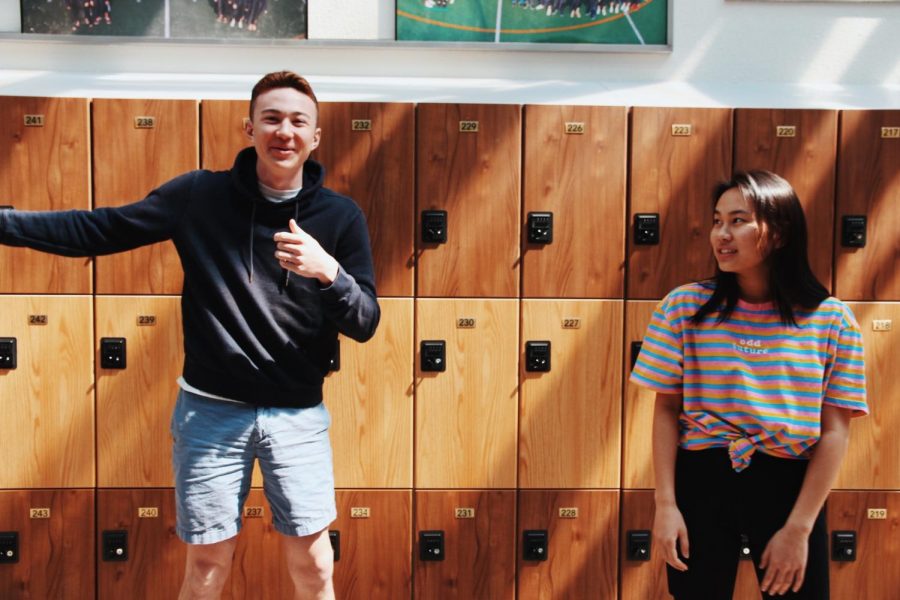

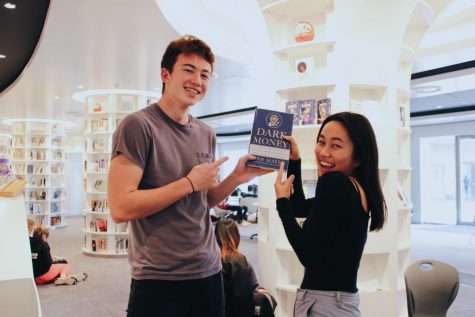
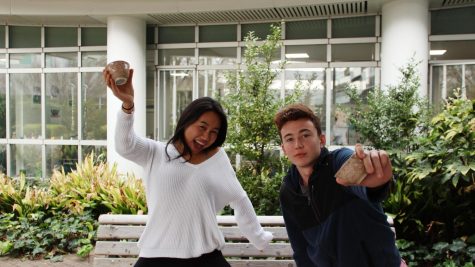
Hannah L • Dec 13, 2019 at 12:24 PM
I think these two responses to this topic were very well written. Each explanation covered all aspect of being “conservative” or “liberal”. I agree with the fact that being high school, your social life will probably be damaged if you spoke completely to your mind. Therefore, I believe that some students are afraid to share their personal thoughts and opinions out loud.
Bronson Boyle • Dec 12, 2019 at 10:13 AM
As a conservative, I fully agree with your analysis of this topic. Yes, the school does tend to lean towards the liberal side, and it can get tiring of having to explain why you believe in what you do. But, I’ve found that, for the most part, the only real harm that can come from this is when one brings politics into a non-political conversation, which just causes even more controversy. As long as you’re respectful of your beliefs, (not trying to prove someone wrong, or bringing them up when not related to the topic) students, while disagreeing with you, will still be fairly civil/respect your opinion.
However, I do think that there is some work to be done on both sides. I think both sides need to work on respecting each other’s beliefs. I think we need to understand why someone would call themselves “pro-choice” or “pro-gun”. After all, our experiences make up a large portion of our beliefs. We can’t make up assumptions solely based on one’s beliefs without knowing what led them to believe this in the first place, can we?
All in all, I think this common idea of “discrimination” that many conservatives feel is due to the lack of both sides not being able to see the other’s side, as well as understand why they feel that way.
Great take from both of you guys, It was very interesting to read.
mason • Dec 12, 2019 at 8:18 AM
very interesting
Kieran Kell • Apr 16, 2019 at 11:16 PM
Wowow, really good takes, the both of you. I think the issue of “conservative vs liberal” in ASIJ is largely overblown, in part because we’re still in High School. Coming from the perspective of someone who used to be super opinionated, I think you’d be hard pressed to find a teenager with a sincerely held political belief. Most people have political inclinations, and I think these are much more informed by socio-economic background than by any deeply held intellectual conviction. This could be why ‘conservative’ students describe themselves as being discriminated; they feel a sense of alienation that goes beyond political difference. Nevertheless, I agree with Masa that ASIJ doesn’t have too much political diversity, and whatever political energy ASIJ does have is tempered by the fact that most of us are pretty similar.